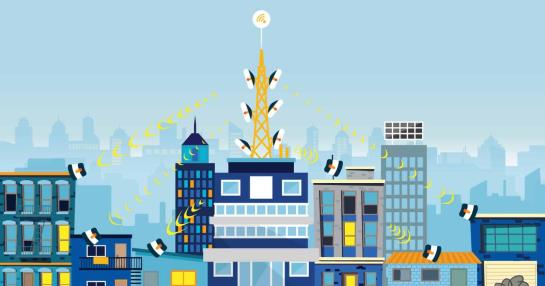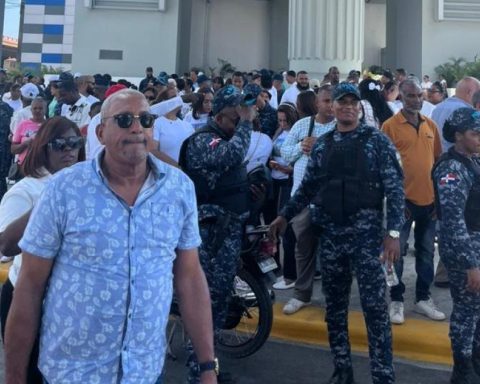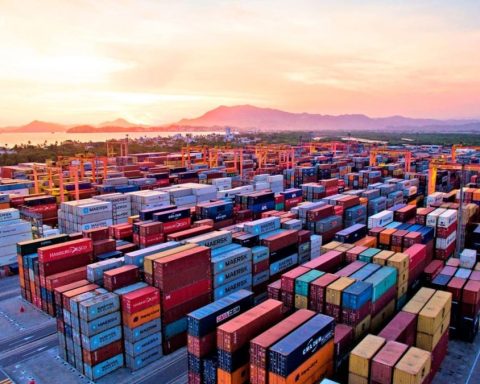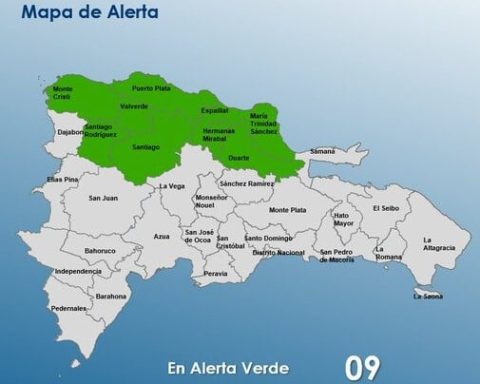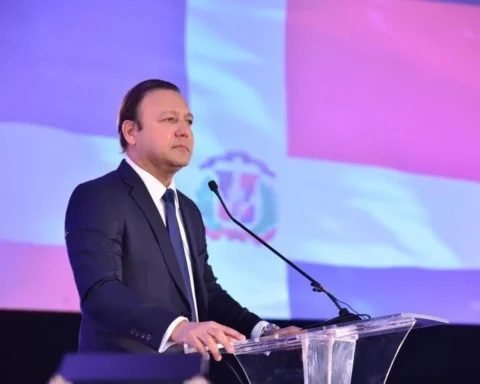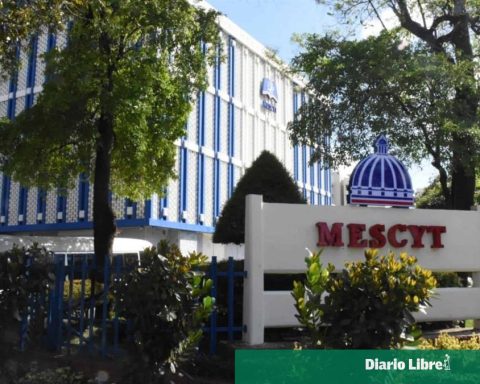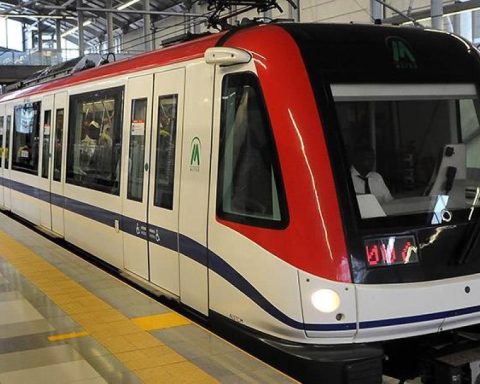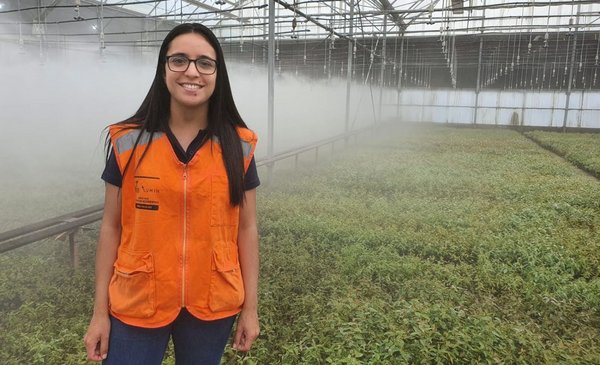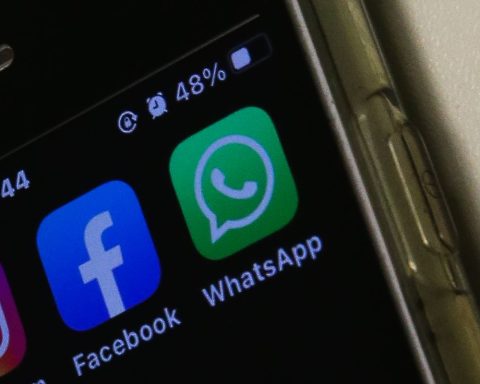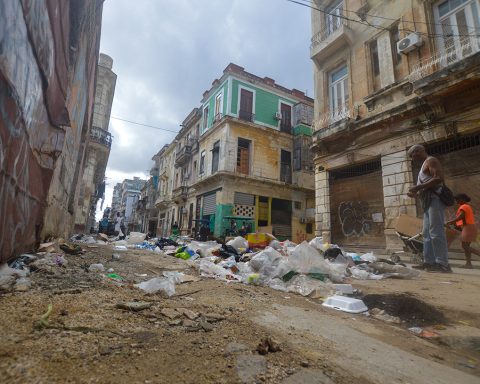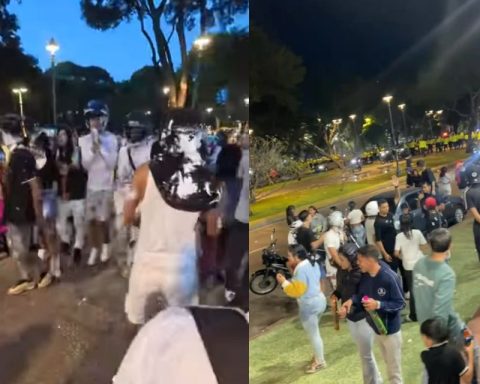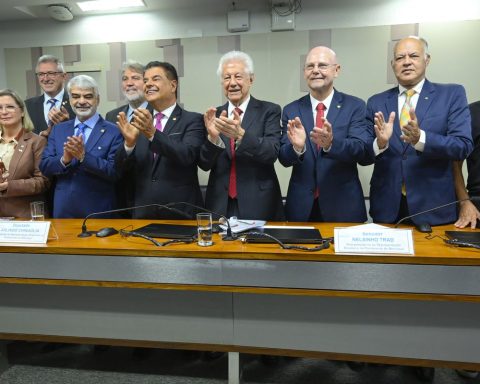Wilson resells internet in his neighborhood on an irregular basis. Before the COVID-19 pandemic, he had just over 100 clients. When confinement came, which promoted remote work and virtual classes, these doubled; now it has about 230. And the telephone companies complain about that, as they report that the illegal internet reselling increased during the health crisis.
Seven years ago Wilson (not his real name, as he prefers to protect his identity) started sharing the internet with a neighbor without any planning and empirically. He got more interested and a business came up. He invested it and it grew. On the roof of his house he has a 120-foot tower installed, at the top of which are the devices that send the wireless signal to the receivers installed in the homes of his neighbors who pay him for the Wi-Fi connection.
In an adjoining room, he has some expensive servers where cables are connected that run through the poles that support the neighborhood’s power lines and the lines of the telephone companies. This is how he brings the service to customers who have contracted fiber optic internet, for which he has invested more than RD$1.5 million in sophisticated equipment. He was interested in starting the procedure to regulate himself as a formal internet reseller, but he complains that it is slow and bureaucratic.
Its way of operating is known by the formal companies grouped in the Association of Communication and Technology Companies (Comtec), which in recent years have maintained the complaint about the existence of these irregular resellers of a service also known as WISP, an acronym which in English mean Wireless Internet Service Provider. In popular jargon they are identified as “wives”.
Telephone companies estimate that, between January and September of the 2021 pandemic, some 5,000 accounts were used for illegal internet reselling in the country. The Dominican Association of Internet Providers (Asodopi), which groups regulated resellers, calculates that the pandemic increased illegality by around 25% and indicates that there are between 2,000 and 2,500 informal providers that do not have any type of registration. The indotel it only reports 76 regulated.
“Some of them are formalized as companies and are trying to make their process in the indotelbut really that is a minority of that number (…) The rest of the 2,000 are not interested in even starting any formalization process”, says George Toma, general secretary of Asodopi.
Toma reports that in the sector it is said that businessmen affected by the economic closure imposed by the confinement in 2020, invested money to dedicate themselves to reselling the internet irregularly.
“In recent months, there has been an increase in these fraudulent activities as a result of the accelerated digitization of Dominican society due to the state of emergency, the COVID 19 pandemic and the lack of consequences for those responsible for these illicit activities. under the scope of application of the General Telecommunications Law”
Comtec points out that 77% of the inhabitants in the Dominican Republic have access to the internet and that there are more than 9 million accounts in the country. And just as they report a growth of illegal internet reselling in the pandemic, companies telecommunications they handled an unexpected increase in traffic of around 40% during the health emergency.
In order to legally resell the internet, the interested party needs to be registered in the special registry of the Dominican Institute of telecommunications (indotel) and the signing of a contract with an internet concessionaire for the resale of its services.
In a written diagnosis of the situation, Comtec explains that they have had cases where the irregular reseller deploys rudimentary networks, “without the slightest compliance with standards”, payment of excise taxes, space leases or authorizations. He indicates that sometimes they use their own network elements (cables, fiber and equipment, such as Wilson’s) or elements stolen from the network companies themselves. telecommunications.

The profile of resellers’ clients is varied. A user justified it to Free Journal arguing that the service offered by the large telephone companies in their neighborhood is deficient. This motivated him to contract the internet offered by a neighbor.
As in 2020 he needed to connect remotely to work during the confinement imposed by the pandemic, he chose to change providers to join the service of another neighbor that offers him a better quality internet and that is regulated by the indotel.
But in the Wilson neighborhood, phone service is good. Clients turn to him for a financial matter. Families with lower incomes and with informal jobs opt for your business because they do not need to be tied to a contract with compromising clauses, nor are they rejected for lacking a clean credit history. If they cannot pay in a month, Wilson does not provide them with internet and there is no penalty.
For a 5 megabit (Mbps) internet plan per month, Wilson charges RD$800, when an official provider asks for RD$1,035. If they are 15 Mgps, through fiber optics, they are sold at RD$1,500, the price for a company in the market being RD$1,684.
For 20 Mbps, he asks his neighbors for RD$1,900, as opposed to the RD$2,074 published by one of the big companies. But Wilson says that there are resellers that have higher prices than the telephone companies themselves, for example, when they do not provide their service in a sector and they supply it.
“An installation of ours (of fiber optics), you easily arrive and you will not notice that it is different from that of another (telephone company), because we do it the same,” explains Wilson.

As of March 1 of this year, the indotel registered 76 legal internet resellers in the Dominican capital and provinces.
where the companies of telecommunications have identified the highest incidence of illegal resale are the Virella and Peking neighborhoods in Santiago; Los Ríos, Villas Agrícolas, Arroyo Hondo I and Luperón in the National District; and The Flintstones in La Romana.
In addition, the Ciudad Satélite, Sabana Perdida, Pantoja, Buenos Aires de Herrera, El Almirante and Ozama sectors, in Santo Domingo. Also, in San Cristóbal, San Pedro de Macorís, Espaillat (Centro Moca sector), and Peravia (Baní Centro sector), as well as in Boca Chica.
From August 2020, when the COVID-19 pandemic was in its first year, and until March 2, 2022, the indotel reports the closure of 31 illegal resellers in the provinces of Sánchez Ramírez, San Cristóbal, María Trinidad Sánchez, La Altagracia, Santo Domingo, Puerto Plata, La Vega, El Seibo, Valverde and Espaillat.
“An installation of ours (of fiber optics), you easily arrive and you will not notice that it is different from that of another (telephone company), because we do it the same”Pseudonym of irregular internet reseller interviewed by Diario Libre
The Dominican Association of Internet Suppliers has defended the legal resale of the Internet and assured that it is working to correct irregularities. In September 2021, in response to complaints from the companies of telecommunicationsthe union indicated that, due to the investments of its members, the 2020-2021 school year “was successful” and connectivity was possible in remote places that are not “profitable business for large companies.”
The indotel explains to Free Journal that, in recent months, Internet service concessionaires have been making occasional efforts so that their services intended for end users are not subject to (irregular) resale, so that the quality of the service received by the users themselves is not affected dealer users.
“The interruption of the services in question is covered by the violation of the service contract signed between the concessionaire and the ‘WISP’, which, in the cases in question, did not identify itself as a reseller at the time of being contracted, and, therefore, Therefore, it does not have a service contract for resale”, observes the indotel to Free Journal.
Wilson buys 100 Mbps per month for RD$95,000 from a formal network company. telecommunications from the country. He explains that the package is called “dedicated internet”, so his contract is different from that of a common user, and he did it as a registered company.
“That is registered and the indotel he knows I’m paying,” he says. This contract is supported by the regulation process that has not been able to advance.
-If you formalize, do you think you would earn less money? -The question Free Journal.
– I do not think so. In fact, formalizing myself I think would help me more, because when you are working without worry, you focus better.
The sector of telecommunications complains that the illegal internet reselling It allows tax evasion to the detriment of development projects, since it affects the State’s income from direct taxes that apply to public services. telecommunications.
How much was it in the 2020 pandemic?
Telephone companies report
RD$10,699millions
The telecommunications sector paid for the Tax on Transfers of Industrialized Goods and Services (Itbis)
RD$7,494 millions
The same sector paid Selective Consumption Tax
The companies of telecommunications They estimate that illegal resale schemes have caused them to invest some RD$1,300 million in increasing the capacity of national and international circuits and equipment for internet connection, to maintain the quality of customer service.
“The companies would have used this investment to grow the network where there is a need to grow, however, they have had to divert it to increase capacity in served areas to support the high consumption of illegal resellers,” they complain.
They demand that the indotel act more quickly to apply corrective actions against the illegal internet reselling. But the regulated resellers consider that the institution does not have enough personnel, both to correct irregularities and to speed up the processing of permits.
The regulatory body defends itself by arguing that it is working on a modification to the regulation of resale of services of telecommunicationswith the aim of adapting it to the evolution that this market has had in the Dominican Republic, a process that had already been notified to Free Journal six months ago.
But Wilson believes that the indotel it should lean more towards the customer, and make sure that they are satisfied with the service of the telephone companies and receive what they are paying for. The companies argue that many times they do not grow in unserved areas due to difficulties in obtaining permits.
